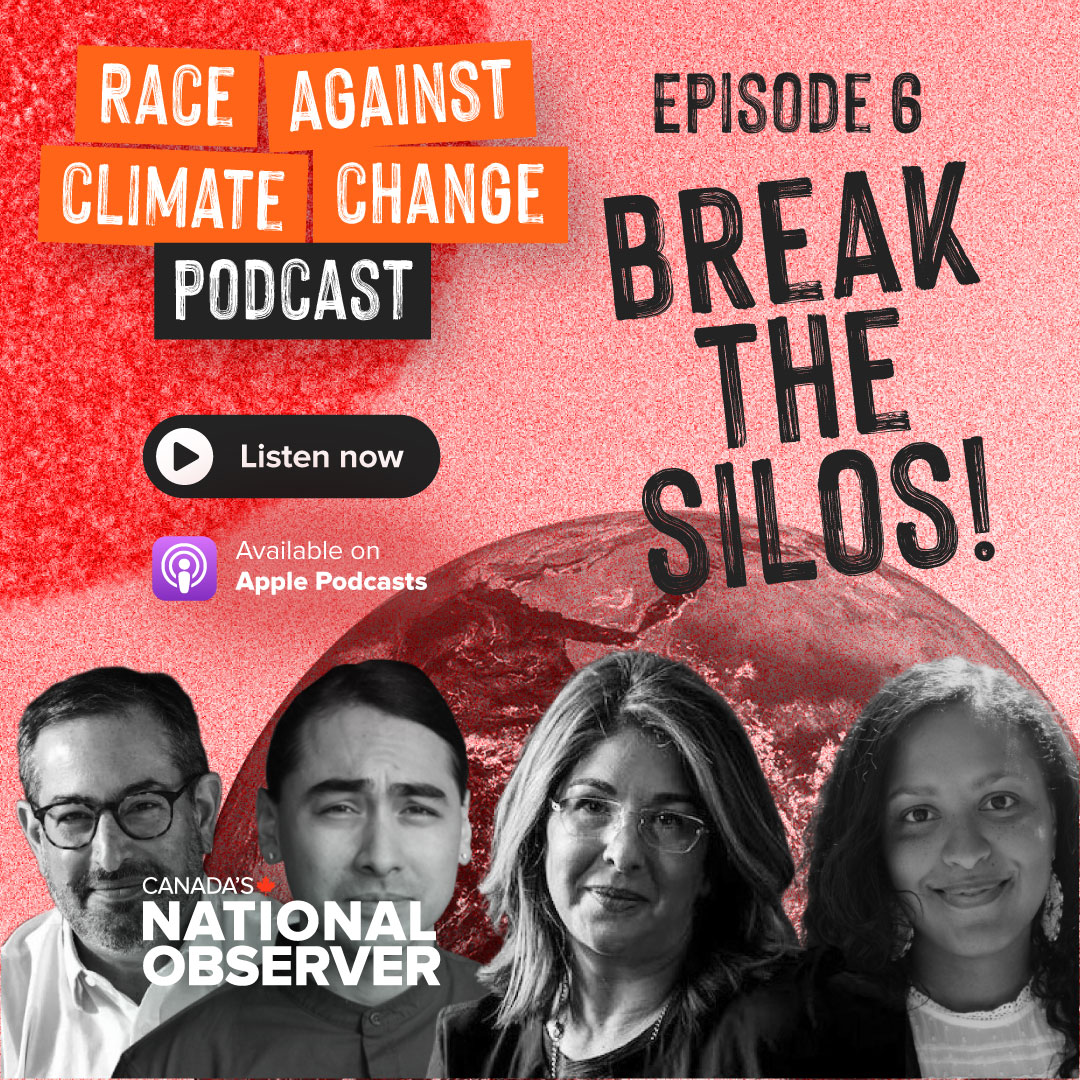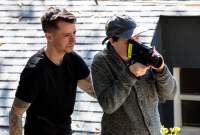Support strong Canadian climate journalism for 2025
The Academy Award nominations are coming out Tuesday. That'll finally end the prognosticating, which has been especially long and thick this year, and sharpen the real business of predicting. Two strong contenders are playing in Vancouver right now: the documentary The Rescue at the Vancity Theatre and from the International category, Drive My Car, at the Rio. Plus others, elsewhere.
New in town, there's only one big one (read far down below), but some very worthy small ones. Here's the list.
Who We Are: A Chronicle of Racism in America: 4 stars
A Cops and Robbers Story: 3½
Poly Styrene: I Am A Cliche: 3
Torn: 4½
Game Stop: Rise of the Players: 4
Cosmic Dawn: 3½
Jackass Forever: 2
WHO WE ARE: It calls itself “a chronicle of racism in America,” but that doesn't reflect all the passion and the anger with which it makes its case. The extensive collection of facts and insights, sure, but not the fire, of which there is plenty. William Kunstler's daughters Emily and Sarah directed it, put a lecture by Jeffery Robinson, ex-American Civil Liberties Union official, at the centre and gave us much to think about. Slavery was the reason for the Civil War, he argues, much as many try to claim it was to preserve a way of life. Slavery enabled that way of life. It created America's first export economy. Even New York got rich because of it. Yet, it wasn't even mentioned in the Constitution, although the term “such people” was used. Robinson doesn't talk of slaves. He pointedly refers to “enslaved people.”

On stage, he illustrates his lecture with slides and pictures (including a badge he says shows that police forces were originally formed to catch slaves who had run off). It's one reason, he says, fear of the police lingers in Black communities. Off stage, he visits the Edmund Pettus Bridge, named after a KKK leader, stands under a South Carolina tree where many lynchings took place, and talks to a woman with clear memories of the race riot in Tulsa, Okla., which he says wasn't a riot, but a massacre. When Abraham Lincoln freed the slaves, he compensated the owners. Woodrow Wilson defended segregation. Slavery is deep in America's DNA, Robinson argues. The film proves it. (Vancity Theatre and also streaming from Hot Docs in Toronto.) 4 out of 5
A COPS AND ROBBERS STORY: Here's another documentary that plays like a vibrant piece of fiction. So incredible is the story, yet it's all true. A Black cop in the borough of Queens in New York is rising up the ranks but hiding a secret. When he was young, hanging out around a convenience store on a street corner, he sold drugs. His boss was the biggest dealer in the city. “I was blinded by the money,” Corey Pegues recalls. “We didn't have to answer to nobody.”
He got out, though, after a rival pistol-whipped him and his own gun jammed when he tried to kill him. He joined the police force, moved up the ranks as far as deputy inspector, got a university degree and won commendations. He became a speaker about police abuse of minorities and other cops resented that.

But he was too candid about his past life in a podcast interview. The New York Post picked up on it and exposed his history, including the fact that he was once friends with a guy who shot a cop. It was a scandal; the department turned on him. He had to fight to restore his reputation. The film tells his twisty story with news clips, his own memories, comments from old pals and re-enactments from his earlier years, in which, remarkably, he's played by his own son. It's a spirited film telling this one story of the Black experience in America. (VOD and digital.) 3½ out of 5
POLY STYRENE: I AM A CLICHE: This could also qualify as a Black History Month entry because Marianne Elliott who took on that stage name was of mixed race in England (“half-caste” as she puts it) and reported being shunned because of it. Meanwhile, there were National Front demonstrations against people like her. Racism was part of what she sang about in the punk group X-Ray Spex. Consumerism was the big one, the plastic and artificial life she saw taking over the culture. Hence, the name she adopted.

She had a loud high-energy voice, wrote provocative lyrics and would have made a bigger impact if she and the band were more business savvy. As it is, they recorded several songs that became anthemic and fired up rallies with blasts about fashion and personal identity. A trip to New York gave her scary images of what the future was coming to: “All these plastic things.” Fame damaged her. She was misdiagnosed as schizophrenic, was actually bipolar and died of breast cancer. Her daughter co-directed this film to trace her life and her legacy. Some of that comes from her diary, excerpts from which are read by actor Ruth Negga. More comes from friends, musicians, DJ Don Letts, and fashion designer Vivienne Westwood. It's a fascinating tribute. (Vancity Theatre.) 3 out of 5
TORN: This is one of the most deeply felt personal stories you'll ever see. It is high drama in documentary form about tragedy, the grief that follows and what comes after that: rebuilding a family. Quite an achievement for first-time filmmaker Max Lowe, who tells the story of his father, legendary mountain climber, Alex Lowe and then explores his own feelings about him. It's a complex story told in recollections by his wife, three sons and his best friend and is illustrated with a great deal of film, video and photo evidence.
Alex, who we see climbing sheer rock cliffs and dangling from ropes, was “an exuberant guy,” “attracted to risk” and known to some as the world's best mountain climber. He had an “unstoppable need,” and was away from his Montana home, his wife and three sons a great deal. He died in an avalanche in Tibet. What followed is highly dramatic.

His best friend survived it, came home to comfort the family, fell in love with the widow, married her and became the boys' stepdad. Some 17 years later, Alex's body was found and old emotions were revived. Max deals with them in the intimate interviews he films. In a late scene with his new dad, he asks about “the wall between us” and hears him talk about survivor guilt: “The bear I keep in a cave.” It's not grim. “We became one family” is the film's bottom line. (Disney+.) 4½ out of 5
GAME STOP: RISE OF THE PLAYERS: It was an uprising by amateurs playing the stock market, but did it have any lasting effect? That's the question I'm left with after watching this zippy documentary that tells me what happened but leaves some doubts about what it all means.

The facts: GameStop, a chain of stores selling video games, is said to be going the way of Blockbuster. People are turning to online gaming rather than buying hard copies. Hedge funds on Wall Street are betting the chain will go out of business and are shorting the stock, basically borrowing it to give back when the value drops, pocketing the difference. But a group of internet-based touts, led by one who calls himself “Roaring Kitty,” take a contrary view. They talk it up, buy the stock, others follow, the price soars and the hedge funds lose money. The film says they lost $13 billion, while amateur investors made $70 million. Good story, but what has changed? I've seen comments that any group coming together like that can move the stock market. Maybe it was a one-time thing and says little about the power of hedge funds. Or maybe it really was a people's rebellion. That's the slant the film takes. (Rio Theatre) 4 out of 5
COSMIC DAWN: Here's an intriguing, sometimes eerie thriller about cults and the belief in alien abductions made by a director who claims he had an extraterrestrial encounter as a child. “Aliens are out there — and they are real!” Jefferson Moneo writes in the film notes. He's a Canadian, filmed this in northern Ontario and supports his thesis with a coherent vision on screen. A young girl sees her mother standing in a lake and then disappearing up into a flash of light. “She didn't die,” an aunt tells her and years later as an adult, (Camille Rowe) hears the same sentiment from a woman leading a remote retreat, talking to people who say they had been abducted and returned. She's played with an imperious air by Chilean actor Antonia Zegers. “May you reach the dawn” is a wish she repeats frequently.

We'll eventually find out what she means, but first, we have to experience life at the retreat, the stories of the people there and the power the leader has over them. She's got a burly helper named Dieter and a small Asian woman with a rifle standing guard. She shows the lake where she says the aliens will return and advises them to prepare for that. When one of the women collapses in a fit she says, “They're speaking to her.” Is this all cultist mumbo jumbo or is it real? There's an escape, a repeat encounter and an affirmation: “You are the one they chose.” It's mysterious and highly involving. (Vancity Theatre, VOD/digital release Feb. 11.) 3½ out of 5
JACKASS FOREVER: If this film becomes No. 1 this weekend as many predict, reflect on the sad state of popular culture right now. It delivers humiliation, pain and low-brow jokes with glee, and a lot of people will laugh their heads off. I didn't. We've seen all this already in three previous movies and TV segments and even the ringleader, Johnny Knoxville, admits it. “Twenty years later, we’re still doing the same stupid shit,” he says.
He stages a series of physical assaults on his buddies and films them for our pleasure. Sometimes we get slo-mo repeats to catch the whole event. Exploding toilet anyone? A splash of pig semen? A tarantula near the face or a rattlesnake to kiss? Many of these “tests” are right in the crotch. P.K. Subban fires hockey pucks. A UFC fighter and the hardest-throwing women's softball player take their turn, as do a vulture, a swarm of bees, a bear and more. It's the same thing over and over. And graphic. Knoxville laughs more than we do, but to his credit, he's included a woman as a victim this time.

One of her tests is “scorpion botox.” This is entertainment to cringe to. (Scotiabank, Marine Gateway and many suburban theatres.) 2 out of 5





Comments